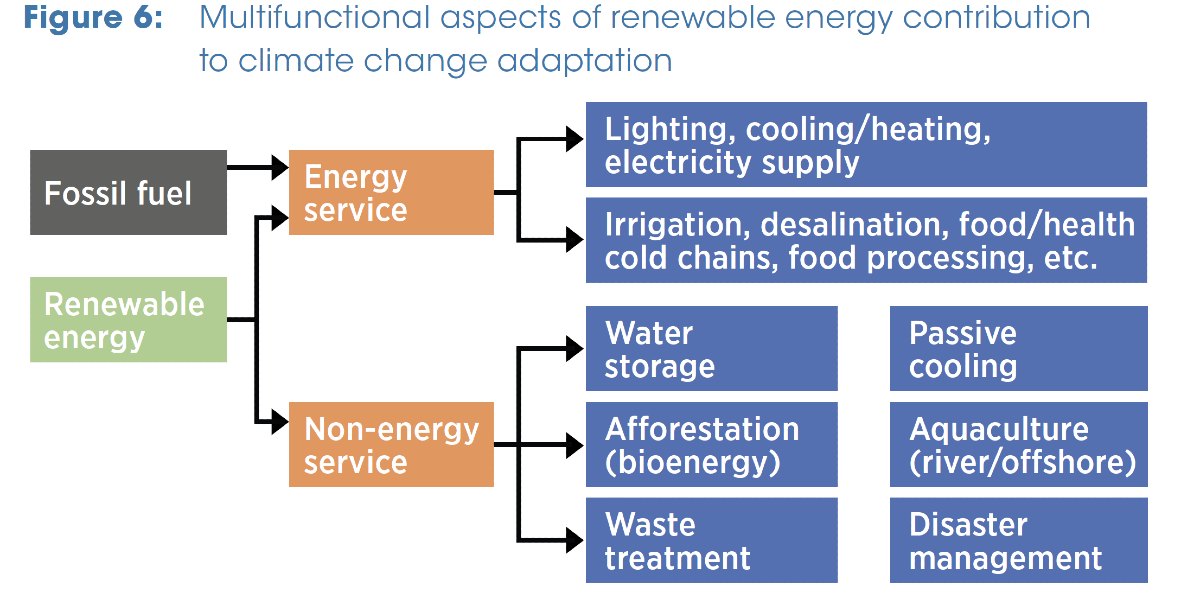

-
-
IRENA (2021), Bracing for climate impact: Renewables as a climate change adaptation strategy, International Renewable Energy Agency, Abu Dhabi.
Copied
https://www.irena.org/-/media/Files/IRENA/Agency/Publication/2021/Aug/IRENA_Bracing_for_climate_impact_2021.pdf
Copied
Bracing for Climate Impact: Renewables as a Climate Change Adaptation Strategy
Newsletter
Many climate change adaptation strategies require considerable energy use, yet the role of reliable, affordable, and modern renewable energy services in climate adaptation is not widely acknowledged in policy making or practice.
By providing ‘greener infrastructure’ for the most climate-vulnerable countries or sectors, renewable energy opens adaptation pathways that also promote mitigation and reinforce adaptation efforts in other sectors synchronously. Hence, renewables need to be integrated into decision-making and planning processes of adaptation projects.
This Staff Technical Paper builds conceptual links between renewable energy and climate change adaptation by illustrating the opportunity renewable energy provides for well-designed, effective, and comprehensive climate adaptation, as well as the benefits of renewables-based adaptation, highlighting some of the contributions of clean energy transitions to climate change adaptation.

The nature of renewable energy such as low carbon emissions, distributed energy solution, and multifunctionality places it in a unique position to address climate change adaptation.
This paper explores three main areas:
- Strategic role of renewable energy in climate change adaptation and in mitigation-adaptation synergies.
- Planning and financing for renewables-based adaptation.
- The way forward for renewables-based climate adaptation solutions.
The paper also provides specific examples of how renewables can prevent or mitigate negative climate change impacts in the sectors of water; food, agriculture, and forestry; natural disaster response; health; as well as oceans, coasts, and small islands.




